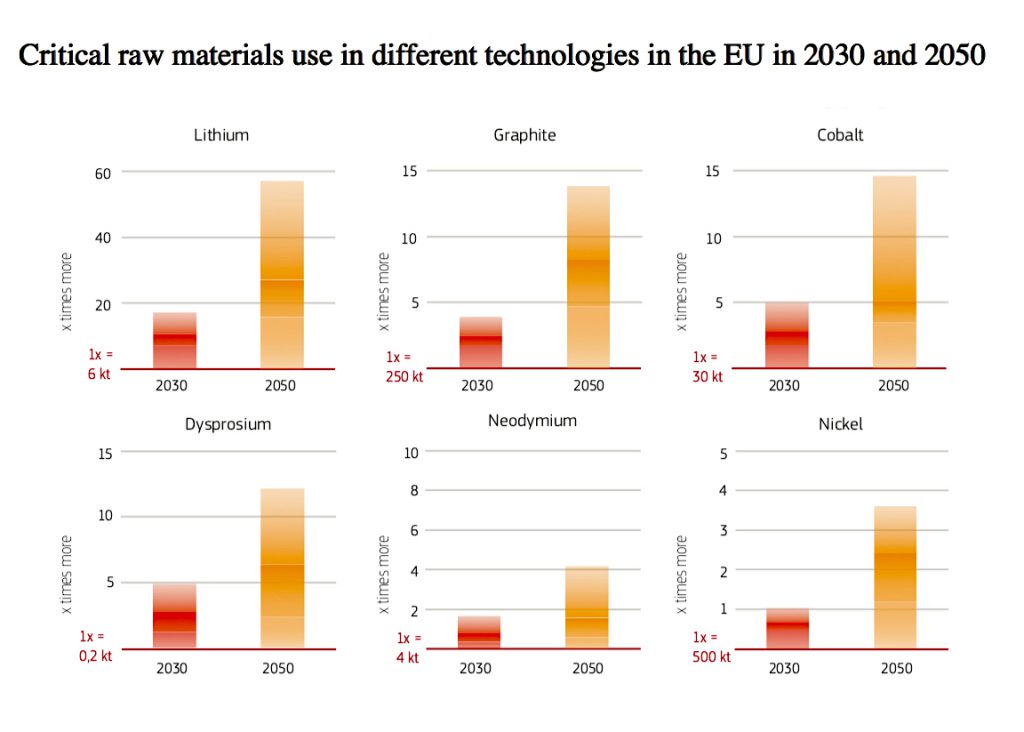EU adds lithium to critical raw materials list
The European Commission, the EU’s executive arm, said on Thursday that the coronavirus pandemic has highlighted the world’s increasing reliance on electronics and technology for remote work, education and communication.
Europe will need about 60 times more lithium and 15 times more cobalt for EV batteries and energy storage by 2050.
As a result, shortages of the key elements needed in the manufacturing of those items threaten to undermine crucial industries and expose the bloc to supply squeezes by China and other resource-rich countries, the Commission said.
“We have to drastically change our approach,” vice-president Maros Sefcovic said in a statement. “We cannot allow to replace current reliance on fossil fuels with dependency on critical raw materials.”
The EU imports around 98% of rare earths from China. Turkey supplies 98% of its borate, while Chile meets 78% of Europe’s lithium needs. South Africa provides 71% of its platinum and Brazil supplies 85% of the old continent’s niobium, a crucial part of steel alloys used in jet engines, girders and oil pipelines.
“We cannot afford to rely entirely on third countries,” European Industry Commissioner Thierry Breton added. “By diversifying the supply from third countries and developing the EU’s own capacity for extraction, processing, recycling, refining and separation of rare earths, we can become more resilient and sustainable.”
The Brussels, Belgium-based body, which first drew up an inventory of critical raw materials in 2011 in response to soaring commodity prices, also added aluminum ore bauxite, titanium — used in aerospace and for orthopaedic implants —, and strontium — an ingredients for EV magnets — to the list.
The body eliminated helium from the group of now 30 materials.
Raw Materials Alliance
As part of the strategy unveiled on Thursday, the European Commission vowed to create a raw-materials alliance by the end of the year.
The coalition will include industry members, investors, the European Investment Bank, EU countries and others that can help secure raw mineral supply chains.

The Commission also plans to promote recycling of vital elements, particularly rare earths. It said that while recycling works well in Europe, less than 1% of products containing the components are actually recovered to be treated.
The activity would drive investment and innovation within Europe, it noted.
The commission also said it wants to start a partnership with Canada and interested African countries next year.




